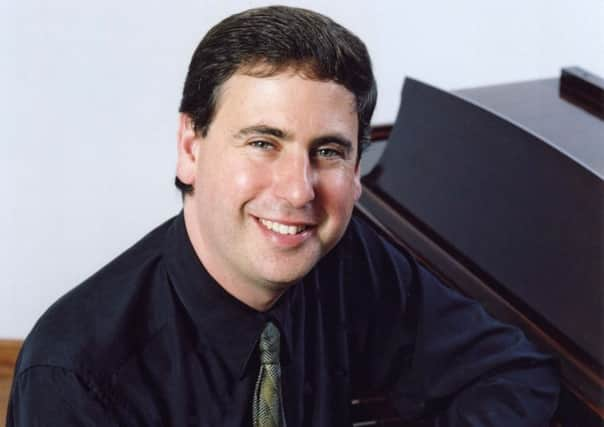Jeffrey Sharkey on the Royal Conservatoire


“I’ve asked for a baby grand piano,” says the soft but firmly spoken American pianist, composer and former director of the Peabody Institute in Baltimore, who has just taken over the leadership baton from John Wallace at Scotland’s national performing arts conservatoire.
“I’d like to coach chamber music, even have the odd concert in here,” he adds. “I find it’s important for my own nourishment as an artist to keep at it in one shape or form. And it helps me connect with our students and teachers.”
Advertisement
Hide AdThis isn’t Sharkey’s first transatlantic career move. He has graduate degrees in musicology and composition from Cambridge (UK) and Yale, and during a 13-year UK stint in the 1990s he was music director at the specialist Purcell School in London, before heading back to the United States as dean of the Cleveland Institute of Music, subsequently taking on the Baltimore job in 2006.
“But I’d missed a particular kind of music making, of artistic participation, that I felt Europe leads the way in,” he explains.
“Through knowing John [Wallace] I’d known about the curricular reform he had put in place in Scotland, which absolutely jived with the kind of thinking I’d been trying to inculcate in the two places I was working at in America: that the arts has to merge some of its ecosystems, that there has to be connectivity between the art forms, and that really both of us had this goal that you can’t really teach a student everything they need to know in four years. You’ve got to give them a capacity for life-long learning, a hunger for gaining knowledge and the ability and the tools they need to let them produce their own career.”
“When I heard John was retiring, I really delved into it and discovered it was the national conservatoire for Scotland. I started reading The Scotsman, and really got excited about Scotland asserting itself on the world stage, using culture as a way to promote what makes the country great, and I couldn’t imagine a more exciting place to live.”
Sharkey’s achievements at Peabody, drawing together the mixed arts platforms of music and dance, seem the ideal springboard for someone about to tackle the wider RCS mix of music, drama, dance and music theatre.
And his noted success in creating a strategic connectivity with the various school feeder levels of education in Baltimore, helped by Baltimore Symphony Orchestra music director Marin Alsop, is precisely in line with similar nascent initiatives at the RCS.
Advertisement
Hide Ad“So it’s finding people with a shared vision,” he says. “In Scotland there’s an amazing Sistema programme, the Big Noise. I met some of them in Baltimore when they were visiting, and I’m so excited about working alongside them, connecting to them. It’s run by some of our RCS alumni, and the work we could do together will help us make an impact on communities and connect to our own Transitions 20/40 programme.”
Sharkey also has his eyes on boosting the RCS’s international profile. “I want to spread our network. I want to ride this wave of Scottish confidence, within the country, within the rest of the UK, within the world,” he argues.
Advertisement
Hide Ad“I want to make us truly the international conservatoire in each area that I believe we deserve to be, and I want to bring that in two ways: with the quality of students, and with the quality of the teaching faculty we have. I want to market our unique assets more strongly.”
Ask him how the RCS is viewed in America, and his answer is surprising. “Our acting and music theatre programmes are really well-known in America, stemming from priority decisions made by the conservatoire some years ago. Music didn’t join that bandwagon, so we’re perhaps less well known there than the London music colleges. I want to promote us in every part of the world as a complete entity.”
But what really excites Sharkey is the prospect of combining all that is good already at the RCS with wisdoms he can bring from the US. “Both aspects of training have incredible validity. Scotland leads the way in inventive career preparation; America very much has specialisms, like musicology. So here we do a more holistic kind of training. Some combination of the two is really important.
“I think the key role for me is coalescing a vision that is shared. It’s already in place here; I can just take those reins and run with them now.”